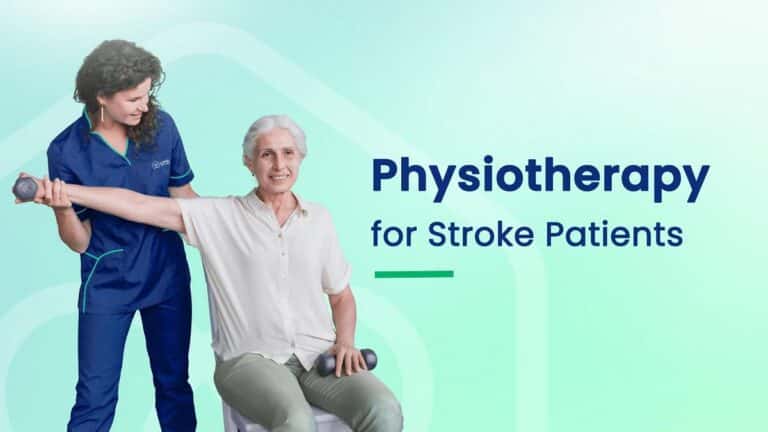
Introduction
When it comes to stroke patients, physiotherapy plays a crucial role in their rehabilitation journey. The National Disability Insurance Scheme (NDIS) in Australia offers support and funding for individuals with disabilities, including stroke survivors. This article will explore the benefits of NDIS physiotherapy for stroke patients and the various options available to them.
Understanding NDIS
The National Disability Insurance Scheme (NDIS) is a government initiative in Australia that provides funding and support to individuals with disabilities. It aims to assist people in improving their independence, participation, and overall quality of life. NDIS participants have access to a wide range of services, including physiotherapy, to help them achieve their goals.
The Importance of Physiotherapy for Stroke Patients
Physiotherapy plays a vital role in the rehabilitation of stroke patients. Stroke can result in various physical impairments such as muscle weakness, loss of coordination, and difficulty with movement. Physiotherapists specialize in addressing these issues and developing personalized treatment plans to optimize recovery and regain functional abilities.
Benefits of NDIS Physiotherapy for Stroke Patients
Improved Mobility and Functionality: NDIS physiotherapy focuses on improving mobility and functionality in stroke patients. Through targeted exercises, stretching, and strengthening techniques, physiotherapists help individuals regain their ability to perform daily activities independently.
Pain Management: Stroke survivors often experience pain and discomfort due to muscle stiffness and spasticity. Physiotherapy interventions such as manual therapy, heat therapy, and electrotherapy can effectively alleviate pain and enhance overall comfort.
Prevention of Secondary Complications: Physiotherapy helps prevent secondary complications that may arise after a stroke, such as muscle contractures, pressure sores, and respiratory issues. Therapists provide guidance on proper positioning, mobility aids, and exercises to minimize the risk of these complications.
Enhanced Balance and Coordination: Stroke can disrupt the body’s balance and coordination systems. Physiotherapists use specialized techniques and exercises to improve balance, coordination, and stability, reducing the risk of falls and injuries.
Emotional and Psychological Well-being: Engaging in physiotherapy sessions can have a positive impact on the emotional and psychological well-being of stroke patients. The encouragement and support provided by physiotherapists help individuals build confidence, motivation, and a sense of achievement throughout their recovery journey.
Options for NDIS Physiotherapy
In-home Physiotherapy: In-home physiotherapy brings the convenience of rehabilitation directly to the stroke patient’s residence. A qualified physiotherapist visits the individual’s home to provide personalized treatment, making it suitable for those with limited mobility or transportation options.
Rehabilitation Centers: Rehabilitation centers offer comprehensive programs and facilities specifically designed for stroke patients. These centers provide access to a multidisciplinary team of healthcare professionals, including physiotherapists, who work collaboratively to deliver intensive and specialized care.
Telehealth Physiotherapy: Telehealth physiotherapy involves virtual sessions conducted via video calls. It allows stroke patients to receive professional guidance and support from the comfort of their homes. Telehealth physiotherapy can be particularly beneficial for individuals living in remote areas or those with limited mobility.
Choosing the Right Physiotherapist
When seeking NDIS physiotherapy for stroke patients, it’s essential to choose a qualified and experienced physiotherapist. Look for professionals who specialise in neurological rehabilitation and have a thorough understanding of stroke-related impairments. Consultation with the physiotherapist before starting the therapy can help ensure a good fit and personalized care.
How to Access NDIS Physiotherapy
To access NDIS physiotherapy for stroke patients, certain steps need to be followed:
Eligibility Criteria: Determine if the stroke patient meets the eligibility criteria for NDIS. The NDIS website provides detailed information on eligibility requirements.
Applying for NDIS: If eligible, the stroke patient or their authorized representative can submit an application for NDIS. The application process involves providing relevant documentation and assessments to support the claim.
Planning and Funding: Once approved, the stroke patient works with an NDIS planner to develop a personalized plan that includes physiotherapy as a support service. The funding allocated in the plan can be utilized for accessing NDIS physiotherapy services.
Conclusion
NDIS physiotherapy offers invaluable support and rehabilitation opportunities for stroke patients. It focuses on improving mobility, functionality, and overall well-being, helping individuals regain independence and enhance their quality of life. Whether through in-home sessions, rehabilitation centers, or telehealth options, NDIS physiotherapy provides tailored care to suit the unique needs of stroke survivors.
FAQs
Can all stroke patients access NDIS physiotherapy?
- NDIS physiotherapy is available to stroke patients who meet the eligibility criteria outlined by the NDIS. It is important to check the NDIS website or consult with healthcare professionals for specific details.
Are there any costs involved in accessing NDIS physiotherapy?
- The costs associated with NDIS physiotherapy vary depending on individual circumstances. NDIS funding can cover the expenses related to physiotherapy as outlined in the approved plan.
How often should stroke patients attend physiotherapy sessions?
- The frequency of physiotherapy sessions for stroke patients depends on their unique needs and treatment plan. It is typically recommended to attend regular sessions initially and then gradually reduce the frequency as the patient progresses.
Can NDIS physiotherapy be combined with other forms of therapy?
- Yes, NDIS physiotherapy can be combined with other forms of therapy based on the individual’s requirements. Collaboration between healthcare professionals can provide a comprehensive approach to stroke rehabilitation.
How long does NDIS funding for physiotherapy last?
- The duration of NDIS funding for physiotherapy varies for each individual. It is determined through the planning process and depends on the specific goals and needs outlined in the NDIS plan.
Ready to embark on your NDIS physiotherapy journey? Contact Family Physio today at bookings@familyphysio.com.au and take the first step towards enhanced rehabilitation and improved mobility. Our team of dedicated professionals is here to support you on your path to recovery.
